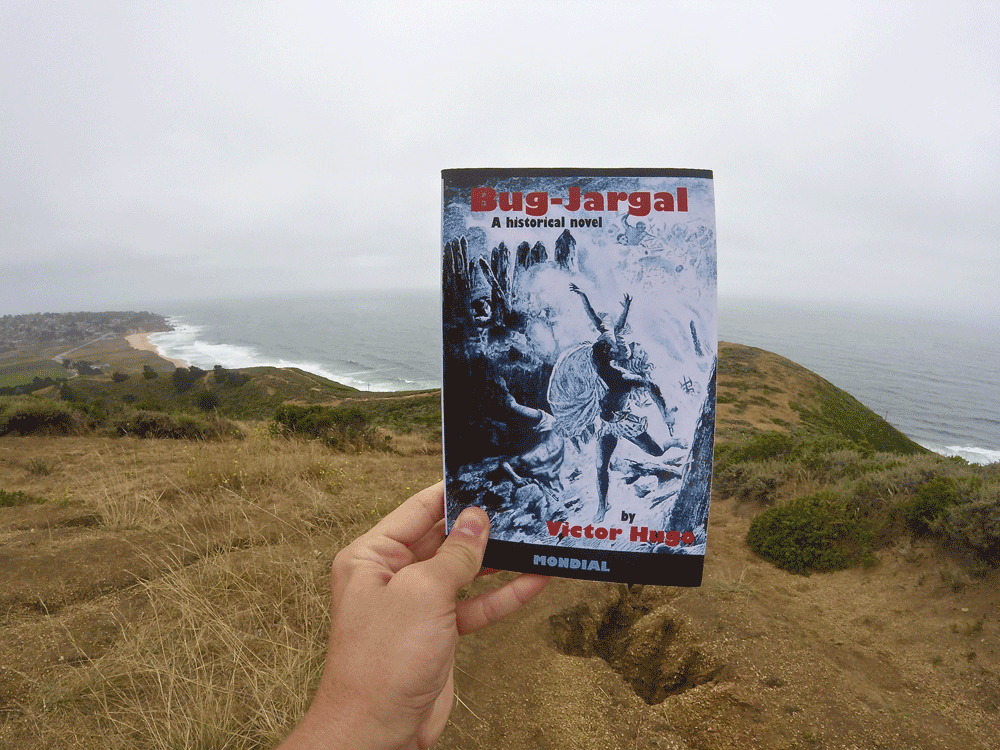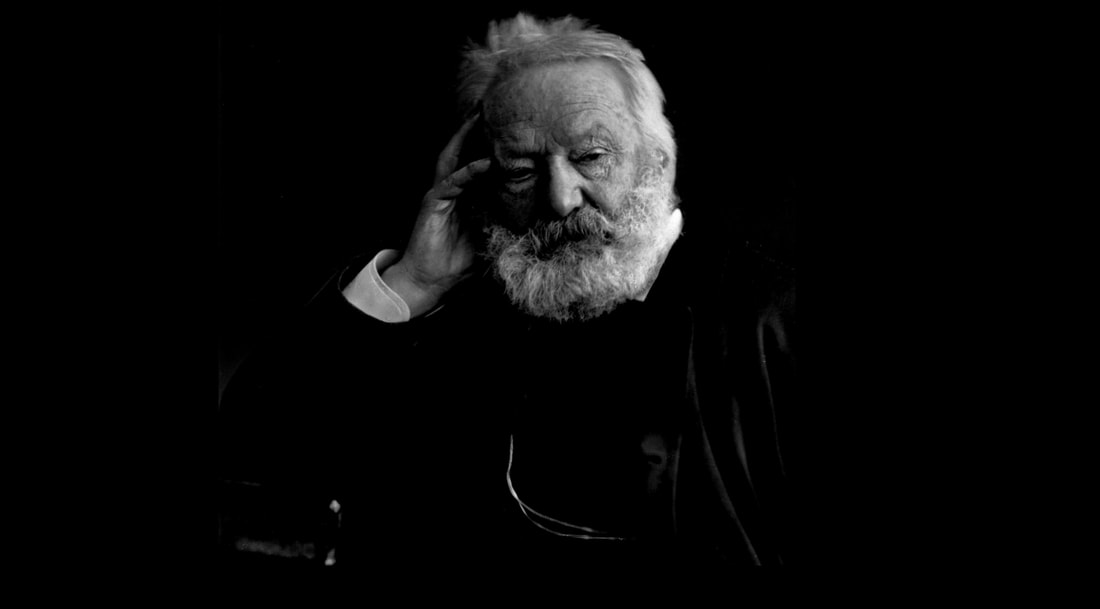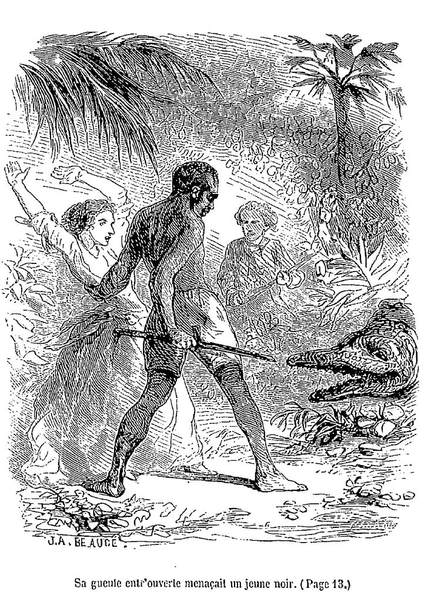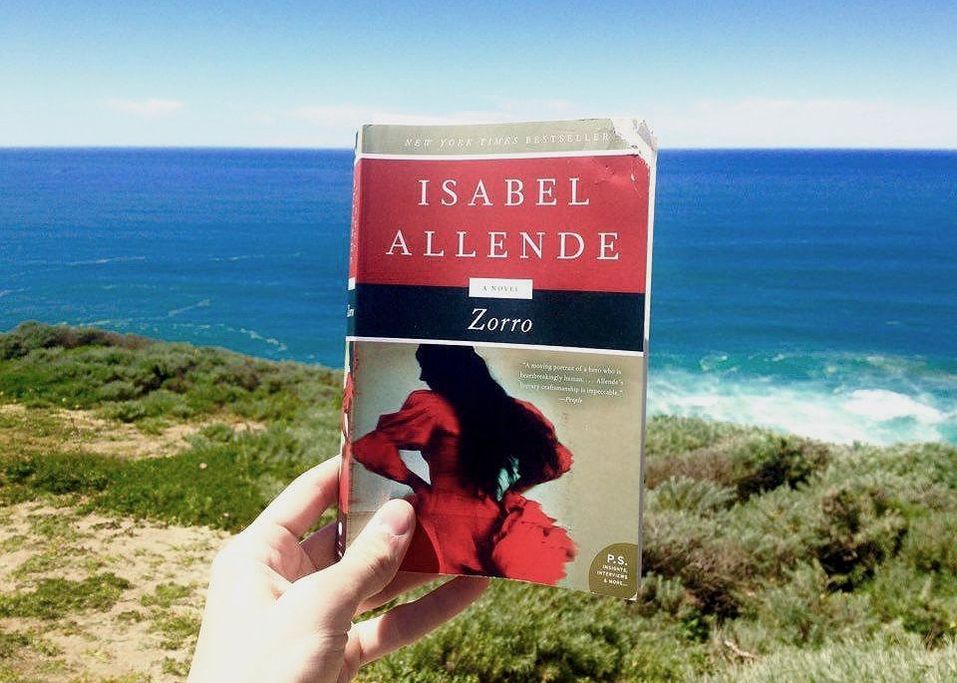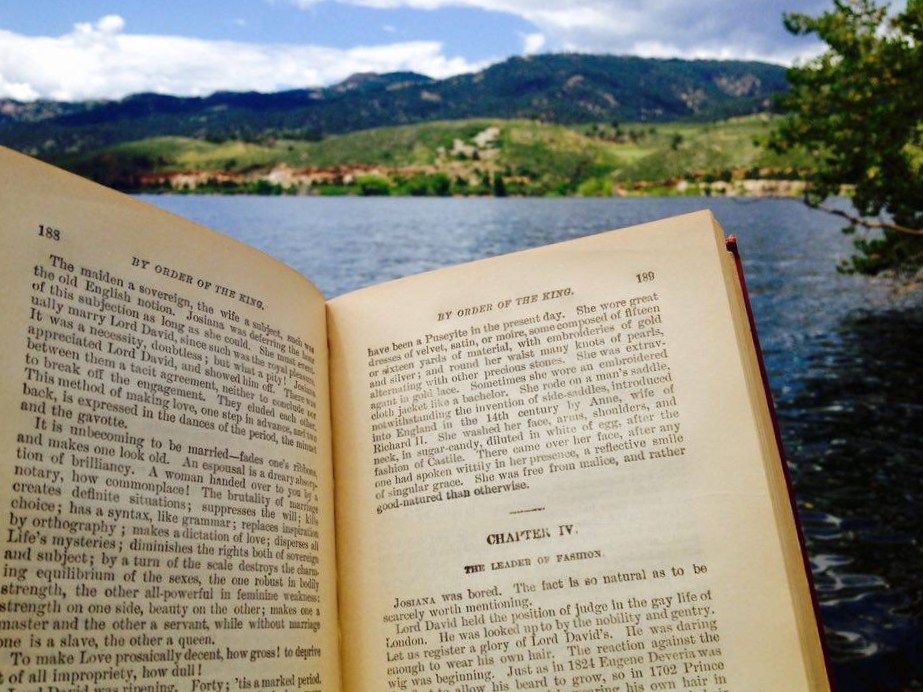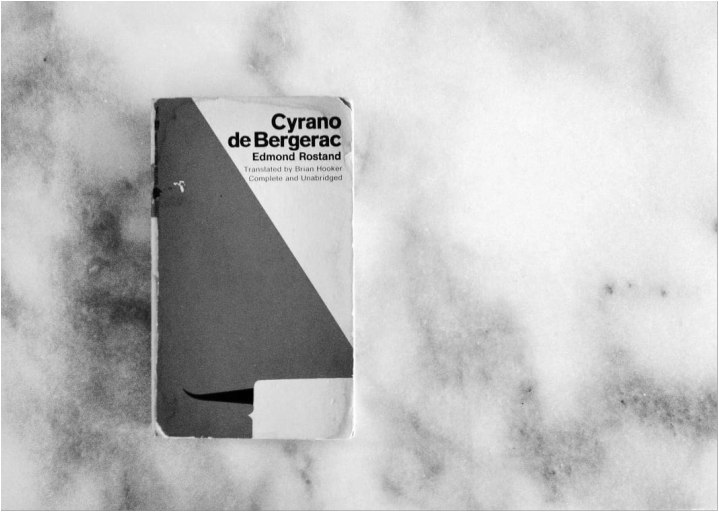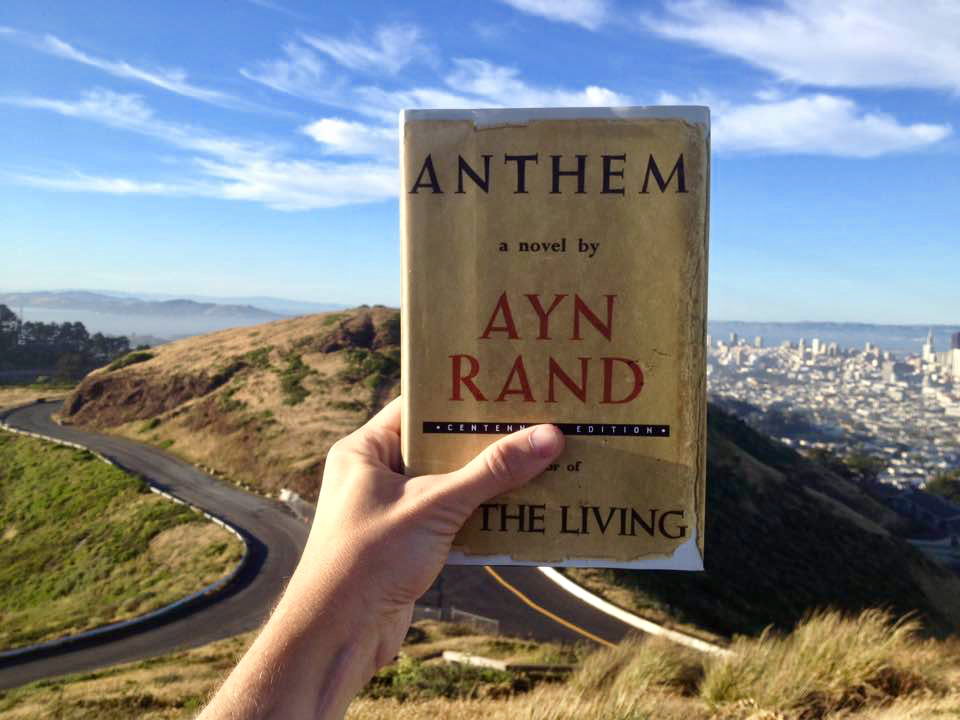| " The most tender feelings of the heart—love, gratitude, and friendship—united themselves together to torture me. Unable to say a word, but sobbing bitterly, I cast myself at the feet of the slave. " |
Five years before Victor Hugo wrote his first full-length novel, The Hunchback of Notre-Dame, he penned an incredible novella: Bug-Jargal. Its peculiar title shares the name of the story's hero, a young African king who is taken from his home and sold as a slave in French-colonized Haiti. The year is 1804, and decades of oppression and slavery are suddenly overturned by mass rebellion—one sparked after Bug-Jargal defends a fellow slave from the wrath of a white slaver—and is sentenced to death.
An island-wide race war ensues. Whites slaughter blacks. Blacks slaughter whites. No man, woman, or child is safe. The protagonist, a young French soldier, Leopold D'Auverney, undergoes a suicidal mission to rescue his betrothed lover who's been kidnapped by Bug-Jargal himself.
An island-wide race war ensues. Whites slaughter blacks. Blacks slaughter whites. No man, woman, or child is safe. The protagonist, a young French soldier, Leopold D'Auverney, undergoes a suicidal mission to rescue his betrothed lover who's been kidnapped by Bug-Jargal himself.
WHY I LOVE IT
Victor Hugo once said that, “If a writer wrote only for his time, I would break my pen and throw it away.” He didn’t, which in part is why his novels are still bestsellers that explore timeless, human themes that every generation seeks. Like his six other novels, Bug-Jargal is not a work of journalism.
Twenty-four year old Hugo chose to recreate his homeland's past crimes in colonized Haiti in order to explore the themes of race, prejudice, and heroism. D'Auverney's quest to rescue his fiancée is also a sophisticated internal journey, in which the character's deepest held beliefs must be sighted, challenged, and vanquished. The stakes are life and death.
There is so much of Victor Hugo's future novels in Bug-Jargal: an excellent plot-theme structure, a grand view man's heroic potential (Toilers of the Sea), a friendly lovable dog (rivaling the one we meet in The Man Who Laughs), a white-knuckled climax involving a villain and heights (like in Notre Dame) and of course, a somber, reverent conclusion (Ninety-Three). [JG]
Twenty-four year old Hugo chose to recreate his homeland's past crimes in colonized Haiti in order to explore the themes of race, prejudice, and heroism. D'Auverney's quest to rescue his fiancée is also a sophisticated internal journey, in which the character's deepest held beliefs must be sighted, challenged, and vanquished. The stakes are life and death.
There is so much of Victor Hugo's future novels in Bug-Jargal: an excellent plot-theme structure, a grand view man's heroic potential (Toilers of the Sea), a friendly lovable dog (rivaling the one we meet in The Man Who Laughs), a white-knuckled climax involving a villain and heights (like in Notre Dame) and of course, a somber, reverent conclusion (Ninety-Three). [JG]
ABOUT THE AUTHOR
Victor Hugo (1802-1885) was a novelist, poet, playwright, and painter most famous for Les Miserables and The Hunchback of Notre Dame, as well as the play Hernani. I've recommended two of his other novels before, The Man Who Laughs and Ninety-Three, both of which are gripping historical dramas that are significantly shorter. He was the favorite novelist of two of my favorites, Edmond Rostand (Cyrano de Bergerac) and Ayn Rand (The Fountainhead and Atlas Shrugged).
An interesting biographical anecdote: Hugo wrote his still-bestselling novel Les Miserables while exiled on the island of Guernsey off the coast of France. Leading up to this 1855 exile, he spent fourteen years serving in various parliamentary roles, a fierce critic of capital punishment, and proponent of universal education as well as freedom of the press. When Napoleon III took complete power in 1851 and established an anti-parliamentary constitution, Hugo openly declared him a traitor. In response, some of his essays were officially deemed illegal to read, and he soon fled with his family for safety.
An interesting biographical anecdote: Hugo wrote his still-bestselling novel Les Miserables while exiled on the island of Guernsey off the coast of France. Leading up to this 1855 exile, he spent fourteen years serving in various parliamentary roles, a fierce critic of capital punishment, and proponent of universal education as well as freedom of the press. When Napoleon III took complete power in 1851 and established an anti-parliamentary constitution, Hugo openly declared him a traitor. In response, some of his essays were officially deemed illegal to read, and he soon fled with his family for safety.
FAVORITE QUOTES
3. "One morning Marie came to me radiant with happiness; upon her gentle face was a sweeter expression than even the joy of pure love could produce, for written upon it was the knowledge of a good deed."
2. "To such atrocities may men be driven who use the dagger for a cross."
1. "His manner, both in speaking and acting, concealed a mystery which I could not understand. In spite of all my prejudices against the man, his voice always made my heart vibrate. In listening to him, a certain hidden power that he possessed subjugated me. I found myself hesitating between vengeance and pity, between the bitterest distrust and blindest confidence. I followed him."
2. "To such atrocities may men be driven who use the dagger for a cross."
1. "His manner, both in speaking and acting, concealed a mystery which I could not understand. In spite of all my prejudices against the man, his voice always made my heart vibrate. In listening to him, a certain hidden power that he possessed subjugated me. I found myself hesitating between vengeance and pity, between the bitterest distrust and blindest confidence. I followed him."
An illustration from an early publication.
Here, Leopold D-Auverney witnesses
Bug-Jargal save Marie from the crocodile.
Here, Leopold D-Auverney witnesses
Bug-Jargal save Marie from the crocodile.
YOU MAY ALSO LIKE
| ANTHEM Ayn Rand |

